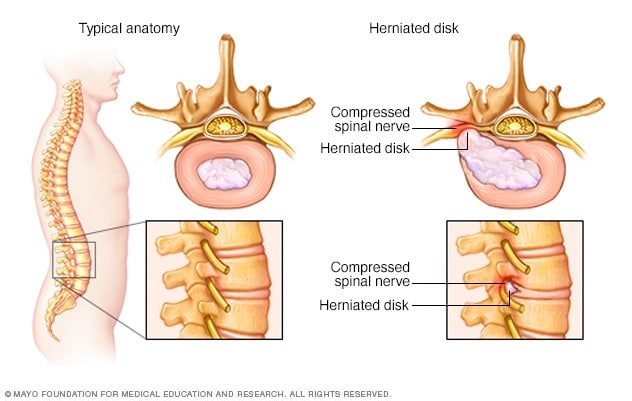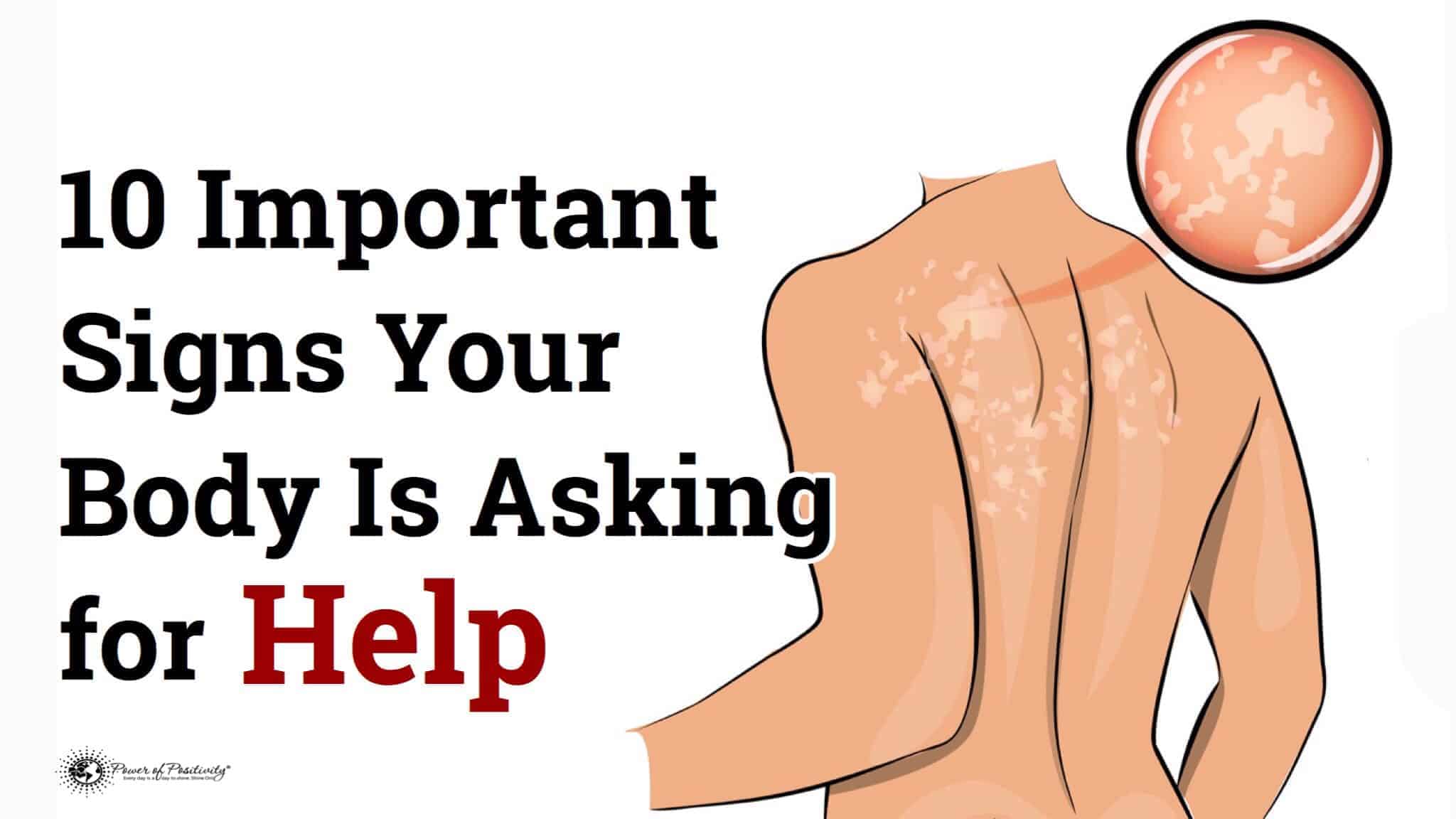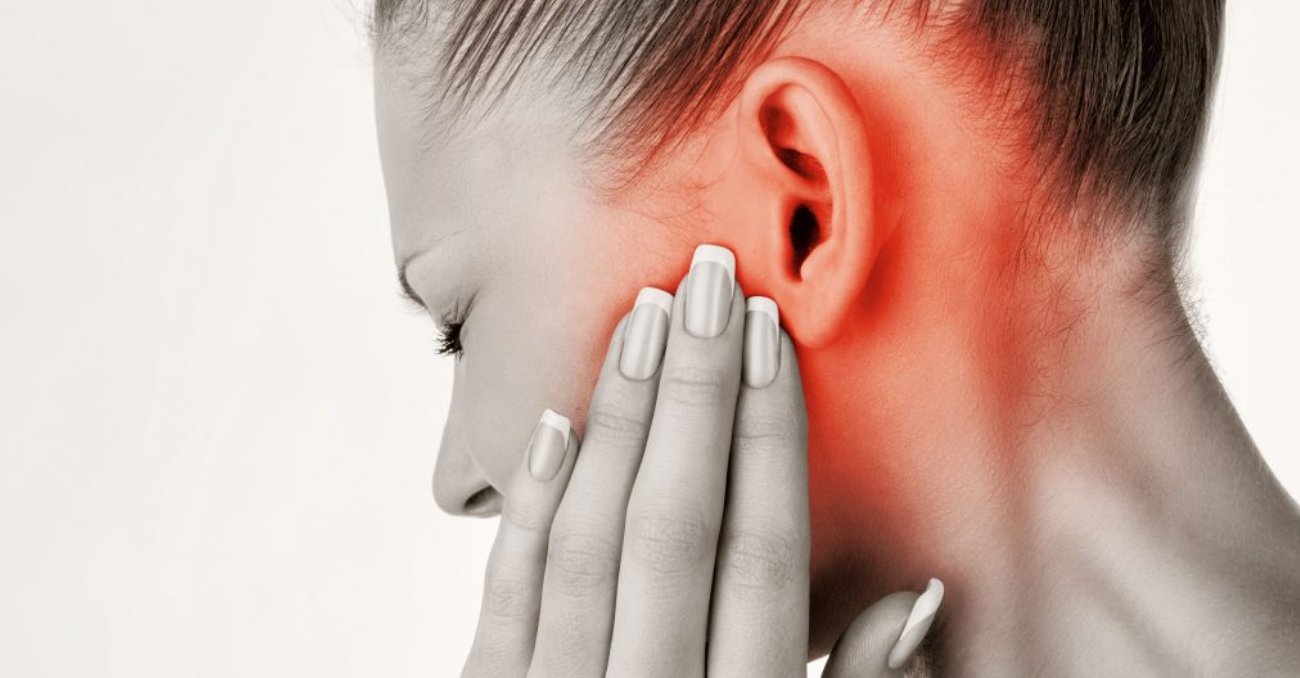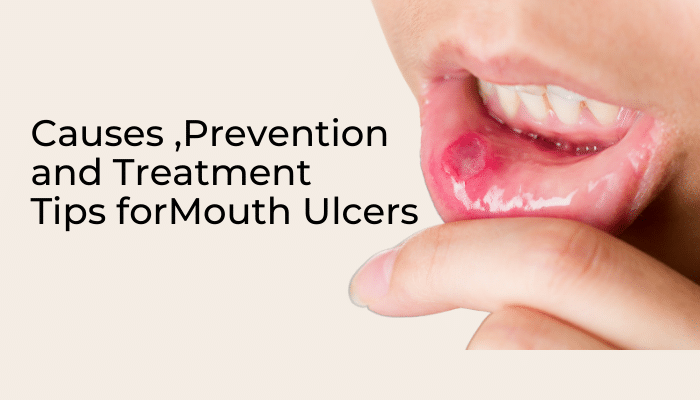
Treatment and Prevention of Aphthous Ulcers
Aphthous ulcers, also known as canker sores, are small, painful sores that develop in the mouth. They are common and can affect people of all ages. Aphthous ulcers are usually round or oval and are typically less than 1 centimeter in diameter. They are often white or gray in color with a red border. Aphthous ulcers can occur anywhere in the mouth, but they are most common on the inside of the cheeks, lips, tongue, or gums.

Causes of Aphthous Ulcers
The exact cause of aphthous ulcers is not known. However, there are a number of factors that may contribute to their development, including:
- Stress: Stress is a common trigger for aphthous ulcers.
- Nutritional deficiencies: A deficiency in iron, vitamin B12, or folate may increase the risk of developing aphthous ulcers.
- Allergic reactions: Allergic reactions to certain foods or substances may trigger aphthous ulcers.
- Autoimmune diseases: Aphthous ulcers are sometimes associated with autoimmune diseases, such as celiac disease or Crohn’s disease.

Treatment of Aphthous Ulcers
Most aphthous ulcers will heal on their own within 10-14 days. However, there are a number of things you can do to help relieve the pain and discomfort of aphthous ulcers:
- Avoid acidic foods and drinks: Acidic foods and drinks can irritate aphthous ulcers and make them more painful.
- Use over-the-counter pain relievers: Over-the-counter pain relievers, such as ibuprofen or acetaminophen, can help relieve pain and inflammation.
- Apply topical medications: Topical medications, such as benzocaine or lidocaine, can help numb the pain of aphthous ulcers.
- Use mouthwash: Mouthwash can help to kill bacteria and reduce inflammation.
If you experience frequent or severe aphthous ulcers, you should see a doctor. There are a number of prescription medications that can help to prevent or treat aphthous ulcers.

Prescription Medications for Aphthous Ulcers
- Corticosteroids: Corticosteroids are anti-inflammatory medications that can help to reduce the size and pain of aphthous ulcers.
- Immunosuppressants: Immunosuppressants are medications that suppress the immune system. They can be helpful for people who have frequent or severe aphthous ulcers that are not responding to other treatments.
- Other medications: Other medications that may be helpful for aphthous ulcers include:
- Antiviral medications: Antiviral medications may be helpful for people who have aphthous ulcers that are caused by a viral infection.
- Antibiotics: Antibiotics may be helpful for people who have aphthous ulcers that are infected with bacteria.
Prevention of Aphthous Ulcers
There is no surefire way to prevent aphthous ulcers. However, there are a number of things you can do to help reduce your risk of developing them:
- Eat a healthy diet: Eating a healthy diet that is rich in fruits, vegetables, and whole grains can help to ensure that you are getting the nutrients you need to keep your immune system strong.
- Manage stress: Stress can be a trigger for aphthous ulcers. Find healthy ways to manage stress, such as exercise, relaxation techniques, or spending time with loved ones.
- Avoid irritating foods and drinks: Avoid acidic foods and drinks, as well as foods and drinks that are hot or spicy.
- Take good care of your oral hygiene: Brush your teeth and floss twice a day to remove plaque and bacteria from your mouth.
Conclusion
Aphthous ulcers are a common and usually harmless condition. However, they can be painful and uncomfortable. There are a number of things you can do to help relieve the pain and discomfort of aphthous ulcers, and there are also a number of things you can do to help reduce your risk of developing them.
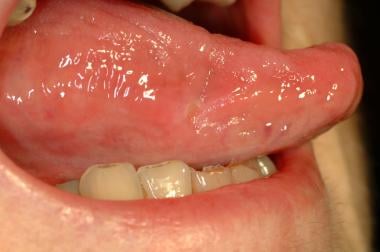
What are aphthous ulcers?
Aphthous mouth ulcers (aphthae) are a common variety of ulcer that form on the mucous membranes, typically in the oral cavity (mouth). Other names for aphthous ulcers include aphthous stomatitis and canker sores. 1
Aphthous ulcers are generally round in shape and form in the soft areas of the mouth such as the inside of the lips, the cheeks or the underside of the tongue. They are benign, non-contagious and can occur as single ulcers or in clusters. In most instances, aphthous ulcers are recurrent – a condition known as recurrent aphthous stomatitis (RAS) – with each episode normally lasting for between 7 and 10 days. 2 The cause of the condition is unclear, and there is no cure, but treatment options are available to treat the pain the ulcers can cause.

Feeling unwell? Get a symptom assessment with the free Ada app. Or find out more about how our symptom checker works before you try it for yourself.
Good to know: Aphthous ulcers are the most common type of mouth ulcer, but they are not the only kind of mouth ulcers.
There are three main types: 3
Minor aphthous ulcers
These are the most common variety. They are small in size – usually less than 5 mm in diameter – and can form as a single ulcer or in a cluster. They typically do not cause much pain.
Major aphthous ulcers
These are less common, are generally 5 mm or larger and form singularly or in a pair. They can be painful, especially when eating or drinking, and last anywhere between two weeks and a number of months.

Herpetiform ulcers
These can occur when multiple pinpoint lesions fuse together and form large, irregularly shaped ulcers. Herpetiform ulcers are so called because of their similarity in appearance to herpes, however, herpetiform ulceration is not caused by the herpes simplex virus.
Symptoms of aphthous ulcers
Aside from the ulcers (aphthae) themselves, the condition has very few symptoms. Before ulceration occurs, some individuals may begin to feel a burning or itching sensation inside the mouth, which can be painful. Once the ulceration occurs, localized pain of various degrees is often present.
What do aphthous mouth ulcers look like?
The ulcers (aphthae, canker sores or mouth sores) are normally shallow and begin as pale yellow in colour, generally turning grey as the condition develops. They may be ringed with red or appear fully red when inflamed. Depending on where the ulcers are located, eating, drinking and talking may become uncomfortable.
Good to know: In severe cases, aphthous ulcers can result in swelling of the lymph nodes, fever and physical fatigue or lethargy. 4 These cases, however, are extremely rare, and the swelling of the lymph nodes is therefore unlikely to be a first sign of aphthous ulcers. If you are concerned that you may have aphthous mouth ulcers, you can do a free symptom check with Ada at any time.

Causes of aphthous ulcers
The precise cause or causes of aphthous ulcers (canker sores) are unknown, however, it is thought that ulceration is brought about by one or a combination of external triggers. It may also be partly genetic, with 40 percent of people who experience ulcers having a family history of the condition. Aphthous mouth ulcers affect around one in five people at least occasionally and most commonly begin to appear between the ages of 10 and 19.
Possible triggers of aphthous ulcers include: 5
- Emotional stress
- Minor injury to the inside of the mouth, for example from cuts, burns or bites while eating, dental work, hard brushing or ill-fitting dentures
- Familial tendency
- Sodium lauryl sulfate – an active ingredient in some toothpastes and mouthwashes; this compound is not proven as a trigger, but is known to prolong the time needed for ulcers to heal
- Certain food and drinks, including coffee, chocolate, eggs and cheese, as well as acidic or spicy foods
- A deficiency of certain vitamins and/or minerals including zinc, B-12, folate and iron that may present with anemia
- An allergic reaction to oral bacteria
- Using, as well as quitting, the use of tobacco products
- Hormonal changes associated with pregnancy
- Having a weakened immune system, due to certain chronic conditions (Immunodeficiency)
Stress is a common cause of mouth ulcers. Although stress does not directly cause mouth ulcers, it does increase the chances of developing them and can affect their healing process. 6 7 Mouth ulcers can also cause stress by affecting how and what the affected person can eat and drink.
Good to know: Dentists are able to advise on ways to reduce the risk of developing aphthous mouth ulcers, for example recommending toothpastes and mouthwashes that do not contain sodium lauryl sulfate or advising on correct brushing equipment and technique to reduce the chance of injury to the inside of the mouth.
Some medications are also linked to the development of ulcers, however, they may not always cause the aphthous variety of ulcers.
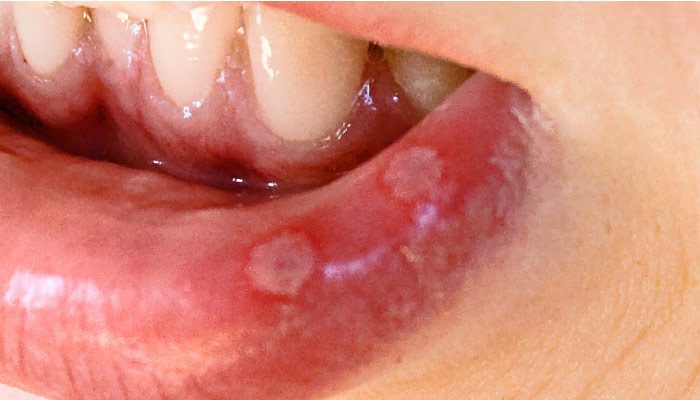
They include: 8 9
- Nicorandil, a drug used to treat angina pectoris, a heart condition
- Ibuprofen and other anti-inflammatory medicines
- Oral nicotine replacement therapy opposed to patch replacement therapy
- Medicines such as aspirin if left to dissolve in the mouth instead of being swallowed
- Illegal drugs such as cocaine
Very rarely, recurrent ulceration can be a possible sign of several serious diseases, including:
- Crohn’s disease
- Celiac disease
- Behcet’s disease
- HIV/AIDS
The ulcers that are symptomatic of these disorders, however, are technically not aphthous but closely resemble aphthous ulcers and are therefore called aphthous-like ulceration. 10 People who experience recurrent outbreaks of ulcers or ulcers that are slow to heal, especially painful or accompanied by other symptoms should see a doctor as soon as possible. If you or someone you know has recurrent mouth ulcers or ulcers that do not heal, you can do a free symptom check with the Ada app at any time.
Diagnosing aphthous ulcers
In most cases, especially when the condition is not recurrent, diagnosis will be based around medical examination and an investigation of an individual’s medical history.
A proper evaluation and diagnostic work-up of recurrent ulceration is important due to its links to other, more serious conditions such as celiac disease, inflammatory bowel diseases like Crohn’s disease or conditions causing a weakened immune system, such as HIV/AIDS. The diagnostic process may involve the ruling out of these conditions through blood tests or, less often, using a gastroscopy or colonoscopy, possibly also obtaining tissue samples. 11 The course the diagnostic work-up will take will depend on the doctor’s evaluation of the severity of an individual’s condition and the presence of any other symptoms.

Complications of aphthous ulcers
Although most mouth ulcers will clear up within two weeks, in very rare cases they may become infected with bacteria. This usually only happens in severe cases, where the ulcerated area is extensive.
In the case of a secondary bacterial infection, an antibiotic mouthwash and a means of managing the pain and discomfort may be prescribed. In some cases, oral antibiotics may also be needed (see the section below on treatment). 11
Aphthous ulcers treatment
There is no cure for aphthous ulcers, aphthae or canker sores, but there are ways to manage the symptoms. In the majority of cases, the ulcers will disappear without treatment and avoiding hard or irritative foods, like e.g. pineapples, applying cold substances to the affected area and if needed using numbing preparations, like topical lidocaine or benzocaine will be enough to manage the pain.
When further treatment is required, there are several possible options, with the chosen route depending on a doctor’s judgement of how well each may work, based on the location and severity of the ulceration, and the affected person’s general health. 12
Anti-inflammatory treatment
Over-the-counter, topical anti-inflammatory pastes applied directly to the problem area may be effective in managing the symptoms of aphthous ulcers (aphthae/canker sores), particularly of the minor variety. These pastes should be applied between two and four times per day, please follow the specific recommendations of your pharmacy or doctor.
Antiseptic and Antibiotic treatment for aphthous ulcers
The use of an antiseptic mouthwash e.g. containing chlorhexidine, twice per day or as per your doctor’s recommendations can be part of a treatment regimen of aphthous ulcers. 13 In rare cases a doctor may prescribe topical or oral antibiotics, such as tetracycline or minocycline, which can be effective in treating ulcers. They are typically administered in mouthwash form, with the antibiotic being dissolved in water, swilled around the mouth and spat out. This may be necessary several times per day for a number of days. 14
Good to know: Antibiotic mouthwashes containing tetracycline should be avoided in children younger than eight years of age or even older, depending on your doctor’s recommendations, as they can cause the teeth to become discolored.
Other treatments for aphthous ulcers
Other treatments may include topical or, rarely, oral steroids, typically used when the ulcers are unresponsive to other treatment methods; silver nitrate;; other local anaesthetics/numbing agents; and nutritional supplements (containing folate, zinc or vitamin B-12, for example). 15
Home remedies for aphthous ulcers
There are a number of popular home remedies for aphthous ulcers, including: 16
- Rinsing the mouth with salt water
- Rinsing the mouth with a solution of baking soda/sodium bicarbonate and water
- Application of milk of magnesia to the ulcer after rinsing
- Application of ice chips or cubes to the affected area to reduce swelling
- Teething ointments containing local anaesthetic to manage pain and discomfort
- Reducing stress
- Avoiding hard foods or foods that may scratch the interior of the mouth
Nutritional supplements such as Vitamin B-12 capsules, Vitamin D capsules, folate tablets, or zinc tablets can also reduce the risk of developing canker sores.
Aphthous ulcers prevention
To lessen the likelihood of an ulcer outbreak, especially for those with a history of recurrent aphthous ulcers (aphthae), a number of measures can be taken.
- Avoiding foods that may trigger ulceration in the individual person
- Focussing on a healthy, balanced diet containing sufficient amounts of nutrients and vitamins
- Maintaining good dental hygiene and using a soft toothbrush to avoid irritation
- Reducing stress and getting plenty of sleep
Aphthous ulcers prognosis
Aphthous ulcers (aphthae) are generally non-serious and will go away without any particular treatment.
Ulcers that heal on their own within a few weeks are not an indication of oral cancer and are non-infectious. The ulcers, however, can be very painful and inconveniencing, especially if they are recurrent. Many people will find that they stop getting aphthous ulcers as they get older.
Good to know: If an ulcer or group of ulcers does not heal within three weeks, or lasts for longer than three weeks, the affected person should see a doctor as soon as possible for a proper diagnostic workup. In some cases, a persistent ulcer may indicate oral cancer.

